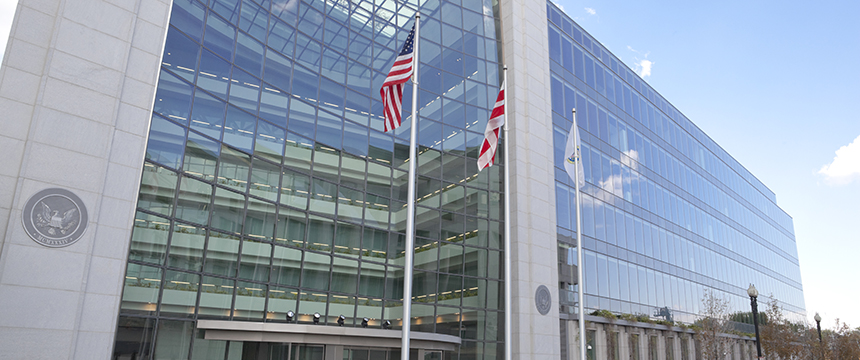New SEC Staff Legal Bulletin Eases Path for Rule 14a-8 Shareholder Proposals on Environmental, Social, and Governance Issues

On November 3, 2021, the staff of the U.S. Securities and Exchange Commission, Division of Corporation Finance (the “Division Staff”) issued Staff Legal Bulletin No. 14L (CF) (“SLB 14L”), rescinding Staff Legal Bulletin Nos. 14I, 14J and 14K (the “rescinded SLBs”) and indicating that the Division Staff would apply a more shareholder favorable approach when evaluating no-action requests to exclude Rule 14a-8 shareholder proposals addressing significant social policy issues..
Rule 14a-8 under the Securities Exchange Act of 1934 requires public companies to include shareholder proposals meeting certain conditions in their annual proxy statements. The rule establishes, among other things, certain reasons why a company might be allowed to exclude such a shareholder proposal, with one of the most common exclusions being set out in Rule 14a‑8(i)(7), allowing an exclusion for matters relating to the company’s ordinary business. In evaluating whether this exclusion applies, the Division Staff has historically been ask to consider whether a proposal relates to a “significant social policy issue” that transcends a company’s ordinary business. The rescinded SLBs, adopted between 2017 and 2019, provided guidance that balanced the relation between a significant social policy issue and the business of the company and was generally seen as creating a company favorable standard that would allow for the exclusion of shareholder proposals, even ones touching on a significant social policy issue, if the company could demonstrate that the policy issue addressed was not material to the company’s business or that the proposal would result in shareholders micromanaging the company.
SLB 14L reverses the rescinded SLBs and indicates that, when a shareholder proposal addresses a significant social policy issue, the Division Staff will focus on the social policy significance of the issue rather than the nexus between such issue and the company. Accordingly, the new guidance makes it more difficult for companies to exclude shareholder proposals as economically irrelevant or as a matter of ordinary business when the proposal relates to environmental, social or governance (“ESG”) issues, including climate change and human capital management. SLB 14L singles out two types of shareholder proposals that are no longer likely excludable: proposals “squarely raising human capital management issues with a broad societal impact” and those proposals that “request companies adopt timeframes or targets to address climate change.”
Although the Division Staff is “republishing” parts of the rescinded SLBs (primarily with regard to certain technical changes), SLB 14L guts four years of interpretive guidance on issuers’ exclusion of ESG-related shareholder proposals from proxy statements. As a result, SLB 14L is expected to open the door for the inclusion of a wide range of previously excludable ESG-related proposals.
Summary of SLB 14L
| Rule 14a-8 | Background | SLB 14L New Guidance | |
|
Rule 14a‑8(i)(7) – Ordinary Business Exception: Significant Social Policy |
|
|
|
| Rule 14a‑8(i)(7) – Ordinary Business Exception: Micromanagement | Rule 14a 8(i)(7) also allows an issuer to exclude a shareholder proposal under the ordinary business exception when the proposal seeks to “micro-manage” the company by “probing too deeply into matters of a complex nature upon which shareholders, as a group, would not be in a position to make an informed judgment.” |
|
|
|
Rule 14a‑8(i)(5) – Economic Relevance Exception: 5% Standard |
Rule 14a-8(i)(5) generally permits issuers to exclude shareholder proposals if they relate to operations that account for less than 5% of each of the issuer’s total assets, net earnings and gross sales, so long as the proposal is “not otherwise significantly related to the company’s business.” |
|
Comments on SLB 14L from SEC Staff
SLB 14L marks a dramatic change from the policies promulgated by the rescinded SLBs and is a sign of an increasingly politically active, and politically divided, SEC. SEC Chairman Gary Gensler, a President Biden appointee, lauded the new guidance, stating “The right to put proposals in front of other shareholders for a vote is an important part of the securities laws.” In contrast, the SEC’s two Republican commissioners, Hester Peirce and Elad Roisman, criticized the move as taking a “flavor-of-the-day regulatory approach.” The Commissioners’ response may be an indication of things to come as the Gensler-led SEC begins to issue new rules in politically sensitive areas.
Graphics, Technical Defects and Electronic Transmission Guidance
In addition to the above clarifications regarding exclusion of shareholder proposals under Rule 14a-8, the Division Staff notes the following clarifications and technical changes:
- Proposal proponents can use graphics in proposals, but the words included in such graphics count toward the 500-word limit provided under Rule 14a-8(d). Additionally, while permissible, graphics may still be properly excluded under Rule 14a-8(i)(3) like any textual disclosure in a proposal (e.g., if false and misleading or irrelevant to consideration of the subject matter of the proposal).
- Issuers should not use an overly technical reading of proof of ownership letters to attempt to exclude proposals. While prior Division Staff guidance includes suggested language for proof of ownership, that precise language is not required.
- Email delivery confirmations and company server logs may not be sufficient to prove receipt of emails as they only serve to prove that emails were sent, not received. Therefore, in order to prove delivery of an email for purposes of Rule 14a-8, the sender should seek a reply email from the recipient in which the recipient acknowledges receipt of the email. Division Staff also encourages both companies and proponents to acknowledge receipt of emails when requested. These recommendations apply to all emails regarding proposals, including submission of proposals, defect notices, and responses to such notices.



